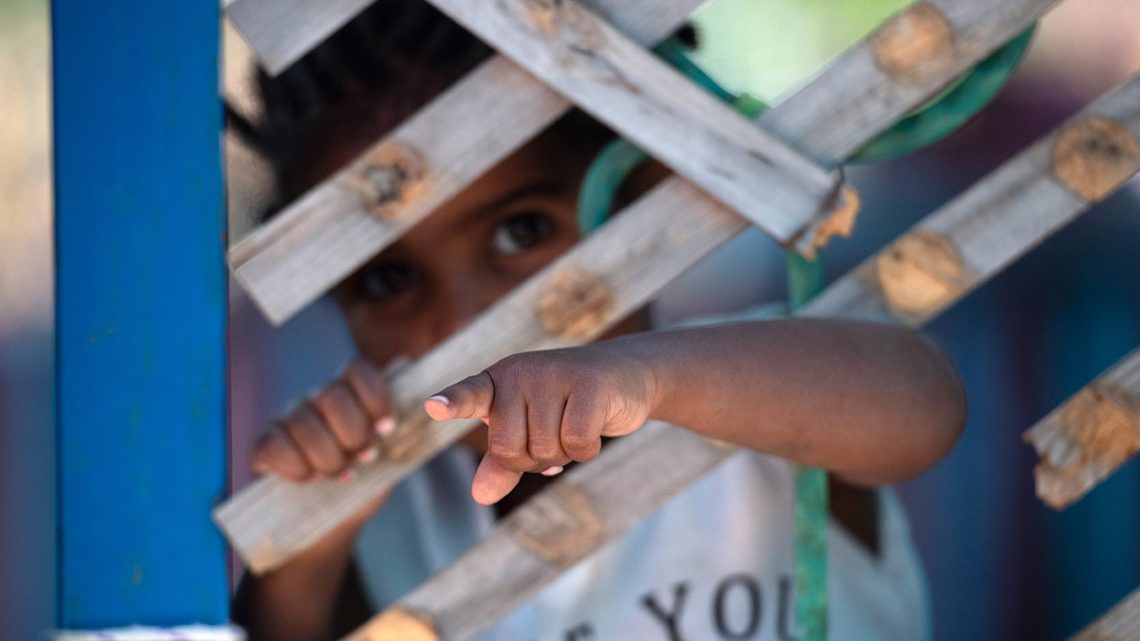
The Secretary General of the Commission of Catholic Episcopal Conferences of the European Union (COMECE) has given a ringing endorsement of a new document on migrants and refugees produced by the International Affairs department of the Bishops’ Conference of England and Wales.
Fr Manuel Barrios Prieto lauded the document Love the Stranger for showing how the principles of the Social Doctrine of the Church “should be applied to the current challenges faced by our states and societies”.
The teaching and advocacy document elaborated by the England and Wales Episcopal Conference on the Catholic response to migrants and refugees is a timely reference and guidance in our polarized European societies. It offers sound orientations on migration and asylum not only for Catholics, but for any person of good who considers human dignity as the basis for a harmonious social coexistence. It is not a mere compilation of principles of the Social Doctrine of the Church on the matter, but a reflection on how these principles should be applied to the current challenges faced by our states and societies.
There is a primary right of every person to remain in his or her own homeland in dignity and safety. If the conditions are not met, there is a recognized human right to migrate. However, nobody should be placed in a position to become a forced migrant. States and the international community as a whole must address conflicts that provoke forced displacement and migration, as well as situations of persecution. Along with these two rights, there is a right to return to one’s homeland when the situation allows it. Nevertheless, not always these rights are duly recognized or protected with the consequent undermining of international law and individual human rights.
An exacerbated nationalism that goes beyond the legitimate love for one’s homeland can lead to not acknowledging the common humanity that we all share. A basic pilar of the Christian concept of the human person is that it has being created by God in “his image and likeness” , as imago Dei, and therefore has an inalienable dignity. This is not just a rhetorical expression, but an axiomatic theological and moral principle. No matter in which circumstances a person is, the reality of the unalienable dignity of each person should inspire and guide our actions towards those who are our already in our cities and villages, but also to the newcomers. Welcoming, protecting, promoting and integrating them, as proposed by Pope Francis, is a roadmap of Christian behaviour when meeting those who left their homeplaces looking for international protection or a better future for them and their families. A different ethnic, racial, religious, or social background of a migrant should not be an excuse to deny a humane treatment. There is no Christian alternative to treat humanely a human being.
The President of COMECE, Jean-Claude Card. Hollerich s.j., highlighted recently that migration and asylum policies should be driven not only by solidarity and responsibility, but also by generosity. Christian standards are not based on the “moral minimum” -sometimes imposed by law- but aim at the integral development of all and everyone in the context of the common good. Nobody deserves to be left behind: there is no second-class human beings. With due respect for the public order and the legitimate rights of local population, in particular those in need, European states and societies have resources and means to integrate a large number of migrants and refugees, as the drama of the persons fleeing from the war in Ukraine demonstrates. When some hosting European states or societies lack, for a certain period of time, the possibility to host more migrants or refugees, or are overburden, the international community should commit and look for alternative ways to assist those persons in need of protection.
For years, the England and Wales Episcopal Conference has played a leading role in the Catholic Church on migration issues, including preventing and combating trafficking of human beings, in a decisive and creative way, even beyond its geographical boundaries. COMECE has benefited and will continue benefiting from its valuable experience and cooperation to better address the migration phenomenon, advocating for the human being to be at the centre of any pastoral, social and political action. We congratulate the EWSC for its tireless work for the promotion and protection of migrants, refugees and victims of human trafficking and express our gratitude for this excellent document that is an important step forward towards this shared goal.
Fr Manuel Barrios Prieto
Secretary General of COMECE
(Commission of Catholic Episcopal Conferences of the European Union)
Brussels, 2nd March 2023